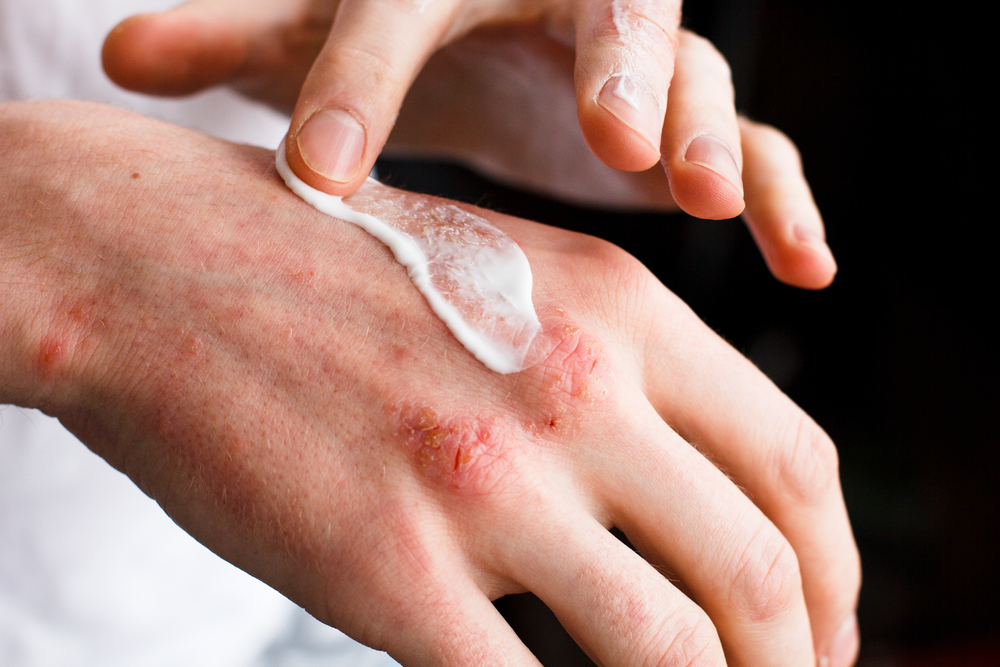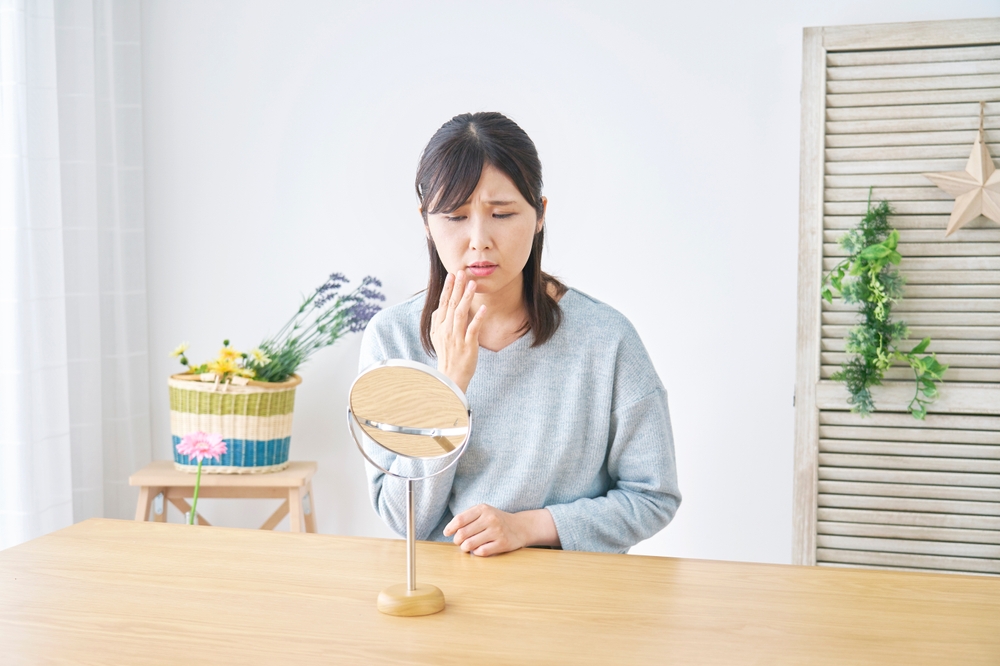Eczema, also known as atopic dermatitis, is an incredibly common skin condition affecting over 30 million Americans. It presents itself as an itchy, irritated rash, typically on the face, elbows, knees, hands, and feet. Although the redness and inflammation can be alarming, it is not contagious. The causes of eczema remain largely unknown, but having parents with eczema increases the likelihood of developing it. Additionally, certain environmental factors can lead to flare-ups. With a better understanding of eczema triggers, you will find there are many ways to manage and prevent your eczema flare-ups.
What Is An Eczema Flare-Up?
Eczema flare-ups are a return of eczema symptoms that typically include a red, itchy skin rash. Eczema symptoms may be chronic/long-lasting, or you may experience short flare-ups after coming into contact with a triggering material.
Common eczema symptoms include:
- Inflamed reddish brown or gray patches
- Itching that worsens at night
- Dry skin that could get raw or swollen from scratching
- Small raised bumps that might crust or leak fluid
- Skin that thickens and cracks
5 Tips to Prevent Eczema Flare-Ups
If you have experienced an eczema flare-up, you know how inconvenient it can be. Here are 5 tips that can prevent eczema flare-ups so you can avoid them altogether.
1. Avoid Triggers
If you can identify what triggers your flare-ups, try to avoid those things. If you can’t identify the trigger, certain household items are more likely to trigger itchy eczema flare-ups. Limit exposure or document your contact with:
- Wool and polyester
- Soaps with fragrances
- Laundry detergents
- Aftershave lotions
- Turpentine and other solvents
- Certain household cleaners
2. Wear Gloves
Remembering to wear gloves when going out in cold weather is an easy fix. Wearing gloves in cold weather will not only keep you warm but also protect your hands from the cold air that can dry out your skin and make your eczema worse. It’s also important to wear gloves when washing dishes, cleaning, or doing other tasks where your hands come into contact with chemicals or irritants.
Don’t overdo it either. Give your hands a break from the gloves once in a while, as sweat can also make eczema worse.
3. Cut Your Shower Time (And Other Shower Tips)
Take a warm bath or shower, and keep it short. Long, hot showers can dry out your skin and make flare-ups more likely. Use unscented bath products and don’t overuse them. When you’re done, pat your body dry with a soft towel. Do not rub. Rubbing will irritate the skin and exfoliate enough to leave your skin susceptible to irritation throughout the day.
It’s also a great idea to apply moisturizer to the skin immediately after showering. Applying lotion while the skin is still damp allows your skin to absorb and lock in moisture. Speaking of moisturizing…
4. Moisturize
Dry skin is easily irritated. It becomes brittle and tight, which can cause eczema to flare up. The key to preventing dry skin is to apply moisturizer all over your body at least twice a day.
Choose a moisturizer that is fragrance-free or does not have many added ingredients. Creamy, thick ointments and creams are better than thin, water-based moisturizers.
5. Reduce Stress
Stressing out about your eczema rash can actually make it worse. In fact, stress in general can be the primary cause of an eczema flare-up. Practice stress-reducing techniques like deep breathing and meditation, and find places in your life where you can de-stress. Stress can also cause involuntary scratching which can make any rash worse.
Bonus Tip:
Visit Borealis Dermatology. Eczema treatments are based on symptom management and trigger avoidance. After discussing your symptoms and identifying your triggers through various diagnostic tests, our team can provide a variety of treatments to help control your symptoms.
With 2 offices in New York, your transformation is closer than you think. Call us today at (516) 246-8800 to find out how a dermatologist can help you manage your atopic dermatitis.






